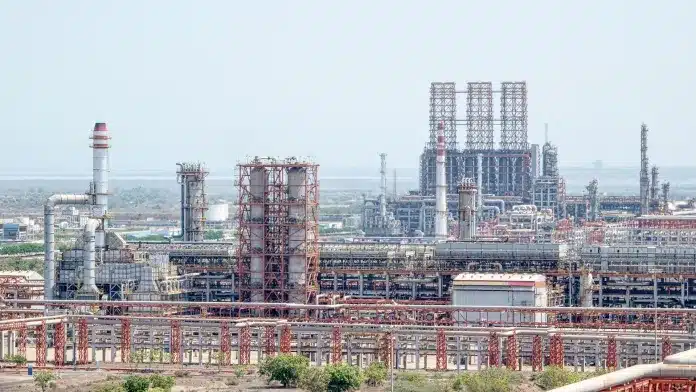EU Imposes Sanctions on Russia’s Crude Oil Sector

The European Union has intensified its sanctions against Russia by targeting an Indian oil refinery owned by Rosneft and lowering the price cap on Russian oil exports. This move is part of the EU’s ongoing efforts to respond to Russia’s actions in Ukraine. The new sanctions package includes additional banking restrictions and limitations on fuel products derived from Russian crude oil, which could significantly impact global oil markets, particularly for countries like India that rely heavily on Russian oil imports.
Details of the Sanctions
On Friday, the EU announced a new set of sanctions aimed at Russia, which includes a significant adjustment to the oil price ceiling previously set at $60 per barrel. This change is expected to compel Russia to sell its crude oil at lower prices, potentially benefiting countries like India, the second-largest consumer of Russian oil. Currently, Russian crude accounts for about 40% of India’s total oil imports. The sanctions also target Nayara Energy Ltd., an Indian refinery in which Rosneft holds a 49.13% stake. Nayara operates a refinery in Gujarat with an annual capacity of 20 million tonnes and manages over 6,750 petrol stations across India.
EU foreign policy chief Kaja Kallas emphasized the importance of these sanctions, stating that they represent one of the strongest packages to date against Russia. The sanctions aim to cut funding for the Kremlin’s military operations and include measures against 105 additional vessels in Russia’s shadow fleet, which are used to circumvent existing sanctions. The EU’s actions reflect a broader strategy to limit Russia’s access to international banking and financial systems, thereby constraining its ability to finance its military activities.
Impact on Global Oil Markets
The sanctions are expected to have a ripple effect on global oil markets. The G7 nations had initially established the $60 price cap on Russian oil sales to third countries in December 2022, allowing Western insurance and shipping services only for transactions at or below this price. However, the effectiveness of this cap has been questioned, as many countries, including India, continue to purchase Russian oil. The EU’s push to lower the price ceiling comes as global oil prices have declined, rendering the previous cap less effective.
The new price cap is anticipated to be set between $45 and $50 per barrel, with periodic reviews to adjust for market conditions. While this could lead to lower prices for countries like India, it also raises concerns about the stability of oil imports, particularly in light of potential US sanctions on nations purchasing Russian oil. President Donald Trump’s recent remarks suggest that countries may face tariffs or sanctions if they continue to engage in trade with Russia, adding another layer of complexity to the situation.
Challenges in Enforcing Sanctions
Despite the EU’s efforts, the effectiveness of the sanctions remains uncertain. Russia has developed a robust system for supplying oil to India, including comprehensive delivery services and insurance coverage. Reports indicate that Russia has been able to maintain near-market prices for its crude oil by keeping invoice prices below the $60 cap while increasing transport fees. This strategy has allowed Russia to continue exporting significant volumes of oil, even as it faces sanctions.
The existence of a ‘shadow fleet’—vessels that operate independently of G7 shipping services—has further complicated enforcement efforts. Many of these tankers are not flagged, owned, or operated by entities based in G7 countries, allowing Russia to bypass restrictions. As a result, the price cap has had limited impact, with discounts on Russian crude oil narrowing significantly in recent months. The EU’s sanctions also extend to over 400 vessels within Russia’s concealed oil tanker fleet, aiming to disrupt the flow of oil and limit Russia’s revenue from oil exports.
Future Implications for India and the EU
As the EU continues to impose sanctions on Russia, the implications for India are significant. While India stands to benefit from potentially lower oil prices, the uncertainty surrounding future imports due to US intervention poses a challenge. The EU’s sanctions are designed not only to restrict Russia’s military funding but also to impact its economic stability, which heavily relies on oil revenue. The ongoing conflict in Ukraine and the geopolitical landscape will likely influence how these sanctions evolve and their effectiveness in achieving their intended goals.
Observer Voice is the one stop site for National, International news, Sports, Editor’s Choice, Art/culture contents, Quotes and much more. We also cover historical contents. Historical contents includes World History, Indian History, and what happened today. The website also covers Entertainment across the India and World.
Follow Us on Twitter, Instagram, Facebook, & LinkedIn

